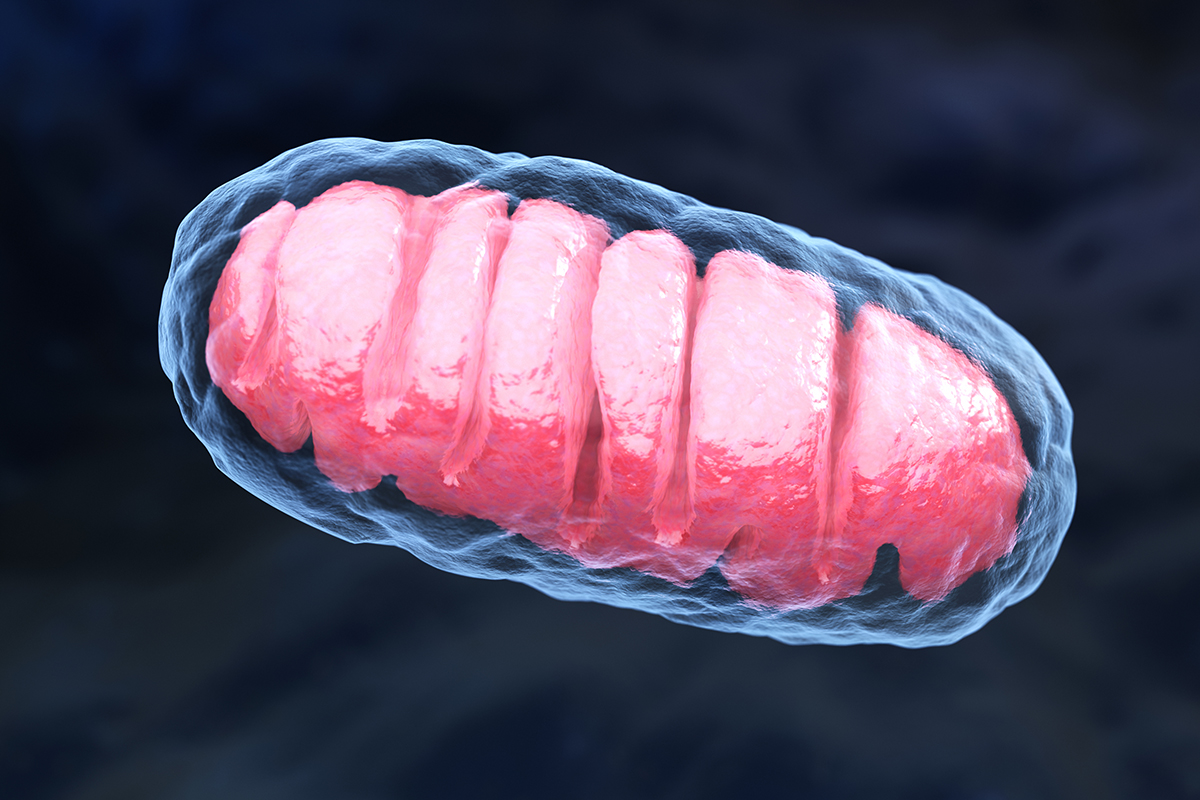Hormone Replacement Therapy (HRT) is often the first line of defense women consider when they experience the upheaval of perimenopause and menopause. Hot flashes, night sweats, mood swings, and sleep disturbances are some of the well-known symptoms. But what about weight gain? Can HRT help you lose those stubborn pounds that seem to pile on during this transitional phase?
In this in-depth blog, we’ll explore the multifaceted relationship between HRT and weight loss. We’ll dive into the hormonal changes during perimenopause, the role of diet and protein intake, the significance of mitochondrial function, gut health, and the impact of muscle mass on metabolism.
Understanding Hormones and Weight Gain
During perimenopause, levels of estrogen and progesterone fluctuate and eventually decline. Estrogen, in particular, has a significant impact on body weight and fat distribution. As estrogen levels drop, many women notice an increase in abdominal fat – often referred to as “menopause belly.”
Estrogen and Fat Distribution
Estrogen helps regulate body weight by influencing insulin sensitivity and glucose metabolism. Lower estrogen levels can lead to increased fat storage, particularly around the abdomen. This shift in fat distribution is not just a cosmetic concern; it’s also linked to an increased risk of metabolic disorders like type 2 diabetes and cardiovascular disease.
Progesterone and Fluid Retention
Progesterone has a diuretic effect, meaning it helps your body eliminate water. As progesterone levels decline, women may experience bloating and water retention, which can contribute to a feeling of weight gain.
The Role of HRT
Hormone Replacement Therapy can help mitigate some of these changes by supplementing the body’s estrogen and progesterone levels. While HRT can alleviate many symptoms of perimenopause, its effectiveness in promoting weight loss is more complex.
Insulin Resistance: A Key Factor in Weight Gain
Insulin resistance is a condition where the body’s cells become less responsive to insulin, a hormone that regulates blood sugar levels. This leads to higher levels of insulin in the blood, which can cause weight gain, particularly around the abdomen. During and after perimenopause, women are more vulnerable to developing insulin resistance due to hormonal changes.
Hormones and Insulin Sensitivity
Estrogen plays a crucial role in maintaining insulin sensitivity. As estrogen levels decline during perimenopause, the risk of insulin resistance increases. Lower estrogen levels can disrupt the normal function of insulin, making it harder for your body to use glucose for energy. This can lead to higher blood sugar levels and increased fat storage.
The Muscle-Fat Dynamic
Our bodies are always in a state of flux, either building muscle and losing fat or losing muscle and gaining fat. This dynamic becomes more pronounced after age 40, when muscle mass naturally declines. Maintaining or increasing muscle mass is essential for counteracting this trend.
Muscle Mass and Metabolism
Muscle tissue has more mitochondria – the powerhouses of our cells – than fat tissue. More mitochondria mean higher metabolic activity, which is crucial for burning calories and maintaining a healthy weight. However, for mitochondria to function well, they need proper nutrient co-factor and antioxidant levels and a healthy lifestyle.
Muscle and Insulin Receptors
Muscle cells have more insulin receptor sites than fat cells because they require more glucose to fuel skeletal activity. More muscle mass increases insulin sensitivity, allowing your body to utilize glucose more efficiently rather than storing it as fat. This is why building and maintaining muscle is so important, especially as we age.
Protein: The Building Block of Muscle
Protein is essential for preserving muscle mass, which is crucial for maintaining a healthy metabolism. As estrogen levels drop, the body tends to lose muscle mass more quickly. Ensuring adequate protein intake can help counteract this loss. Aim for 1 gram of protein per pound of body weight (or target body weight if more than 20 pounds over your ideal weight). This amount supports muscle maintenance and growth, crucial for boosting metabolism and improving insulin sensitivity.
How to Distribute Protein Intake
To maximize muscle protein synthesis, it’s best to distribute your protein intake evenly throughout the day. Aim for 4-5 meals, each containing roughly 20-30 grams of protein. Here’s an example of how you can split this up:
- Breakfast: Greek yogurt with berries and nuts (20-25 grams)
- Mid-Morning Snack: Protein shake or a handful of almonds (20 grams)
- Lunch: Grilled chicken salad with mixed greens and quinoa (25-30 grams)
- Afternoon Snack: Cottage cheese with sliced cucumber (20 grams)
- Dinner: Baked salmon with roasted vegetables and sweet potato (30 grams)
Carbohydrate Intake: Quality and Quantity
As we age, our bodies often become less efficient at utilizing carbohydrates due to a decline in insulin sensitivity and mitochondrial function. This means we may need to adjust our carbohydrate intake to avoid storing excess glucose as fat. However, this doesn’t mean eliminating carbs entirely. Instead, focus on the quality and quantity of carbs you consume, eating them with fiber, and with protein.
Adjusting Carbs for Your Needs
Everyone’s body is different, and genetic factors play a role in how we metabolize carbohydrates. While some may tolerate higher carb intake, others may need to reduce their intake to maintain a healthy weight. Here are some tips to help you adjust your carb intake:
- Choose Complex Carbs: Opt for whole grains, legumes, fruits, and vegetables over refined sugars and processed foods.
- Monitor Portions: Pay attention to portion sizes to avoid overeating carbs.
- Balance with Protein and Fats: Pair carbohydrates with protein and healthy fats to slow digestion and promote stable blood sugar levels.
- Increase Activity: Regular exercise and building muscle mass can help improve insulin sensitivity and allow you to utilize carbohydrates more efficiently. In particular, eating carbohydrates just before or just after exercise, helps your body utilize them instead of storing them as fat.
Time for a Transformation
Understanding these concepts is powerful, but real transformation happens when you put this knowledge into action. This is where the Reverse-Age Method shines. With a proven track record of 20 years in hormone management and creating actionable, step-by-step plans, we ensure you’re not just learning but living these principles. Testing can show us exactly what support you need for gut health, liver detoxification, nutrient replacement, and mitochondrial optimization. Let us guide you through a customized approach designed for your success. Join our free Reverse-Age Method Masterclass to start your journey towards lasting change.
Mitochondria: The Powerhouses of Your Cells
Mitochondria are the energy factories of your cells, converting nutrients into energy. During perimenopause, mitochondrial function can decline, contributing to fatigue and weight gain. Optimizing mitochondrial function is crucial for maintaining a healthy metabolism.
Nutrients for Mitochondrial Health
Certain nutrients are essential for mitochondrial function, including:
- Coenzyme Q10 (CoQ10): This antioxidant helps produce energy in the mitochondria.
- Magnesium: Vital for over 300 biochemical reactions in the body, including energy production.
- B-Vitamins: Essential for energy metabolism and red blood cell formation.
- Alpha-Lipoic Acid: An antioxidant that helps turn glucose into energy.
Lifestyle Factors
In addition to diet, several lifestyle factors can support mitochondrial health:
- Regular Exercise: Physical activity enhances mitochondrial function and promotes the formation of new mitochondria.
- Adequate Sleep: Quality sleep is essential for mitochondrial repair and energy production.
- Stress Management: Chronic stress can impair mitochondrial function. Practices like meditation, yoga, and deep breathing can help mitigate stress.
Gut Health: The Foundation of Wellness
The gut microbiome plays a crucial role in overall health, including weight management. An imbalance in gut bacteria can lead to inflammation, insulin resistance, and weight gain.
Probiotics and Prebiotics
- Probiotics: These beneficial bacteria can improve gut health and aid in weight management. Foods rich in probiotics include yogurt, kefir, sauerkraut, kimchi, and other fermented foods.
- Prebiotics: These are non-digestible fibers that feed the beneficial bacteria in your gut. Sources include garlic, onions, leeks, artichokes, asparagus, and bananas.
Gut-Brain Axis
The gut-brain axis is the communication network between your gut and brain. Imbalances in gut bacteria can affect this connection, influencing mood, appetite, and overall well-being.
Muscle Mass: The Metabolism Booster
Muscle mass is directly linked to metabolic rate – the more muscle you have, the more calories you burn at rest. As women age, muscle mass naturally declines, which can slow metabolism and contribute to weight gain.
Strength Training
Incorporating strength training into your exercise routine is essential for preserving and building muscle mass. Aim for at least two to three sessions per week, focusing on all major muscle groups.
Protein and Muscle Synthesis
As mentioned earlier, adequate protein intake is crucial for muscle maintenance and growth. Consuming protein-rich foods within 30 minutes of a workout can enhance muscle protein synthesis.
Integrating It All: A Holistic Approach
HRT can alleviate many symptoms of perimenopause and menopause, increase longevity by up to 21%, and is the platform for getting the change in body composition that you want….but it is not a magic bullet for weight loss. A holistic approach that includes a menopause-specific diet plan, the right kind of exercise, stress management, and proper sleep is essential for optimal health and weight management.
Personalized Nutrition and Lifestyle
Every woman’s body is different, and a personalized approach is key to achieving and maintaining a healthy weight. Functional medicine testing can help identify imbalances and tailor a nutrition and lifestyle plan to your specific needs.
Detoxification and Antioxidants
Supporting the body’s natural detoxification processes and ensuring adequate antioxidant intake can help reduce oxidative stress and support weight management. Foods rich in antioxidants include berries, leafy greens, nuts, and seeds.
Hydration
Staying hydrated is essential for overall health and can aid in weight management by promoting a feeling of fullness and supporting metabolic processes. Aim for at least eight glasses of water per day, more if you’re physically active.
Ready to Put This Into Action?
Knowing what to do is one thing, but putting it into action and following through is where the magic happens. That’s where the Reverse-Age Method comes in. With over 20 years of experience in managing hormone therapy and crafting simple, actionable step-by-step plans, we sequence everything for your success. Functional testing can pinpoint the exact areas where you need support, whether it’s gut health, liver detoxification, nutrient replenishment, or mitochondrial optimization. This isn’t just about knowledge – it’s about transformation. Watch my Reverse-Age Method Masterclass to learn how we can help you turn these insights into real results.
At the Reverse-Age Method, we believe in a holistic approach to perimenopause and beyond, that addresses the root causes of your symptoms (like insomnia, hot flashes, night sweats, erratic periods, fatigue, skin aging, weight gain, and brain fog)– to also slow the pace that your cells are aging. Whether it’s improving gut health, optimizing detox function, enhancing mitochondrial function, or building muscle mass, our comprehensive program has got you covered.
If you’re new here, be sure to check out our Blog Page for more insights and tips on how to thrive during perimenopause. Our blog is packed with practical advice, success stories, and the latest research to help you on your journey.
For more updates and community support, follow us on social media:
You May Also Like...
Dude, Where’s My Period?
Where's my period? To some women, it sounds like a dream… And when it happens to you, at first you might think… “Hey,…
Endometriosis 101 Part 2: How I Help My Patients Dealing with Endometriosis
Check out "Endometriosis 101 Part 1: What Is this Condition & Why Is it Happening to Me?" HERE While functional…
Whether you’re looking for help with your gut, your hormones, or both, our team of practitioners work together to treat the WHOLE you – guiding you to a healthier mind, body, and spirit day by day.







